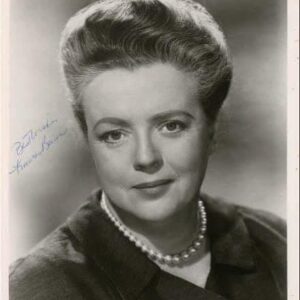What I did for my mother ruined my life
Desperation has a weight. A weight that settles in your bones, bends your back, and clouds your reason. My name is Maria, and for six years I cleaned the house of a man so rich that money seemed to sprout from the walls. To him, I was invisible. Just the woman who polished the marble and vacuumed the Persian rugs.
Everything changed when the doctors said the word: “cancer.” My mother’s. Treatment was our only hope, but its cost was a monstrous figure, an abstract number that mocked my salary, my savings, my entire life. Every day that passed, I watched the color fade from my mother’s face, and my helplessness grew like a weed.
The night everything changed was a Thursday. Don Roberto, my boss, asked me to stay late to help with dinner. The guests left, and the mansion fell into an oppressive silence, broken only by the ticking of a pendulum clock worth more than my house. He poured himself a cognac in a heavy crystal glass.
“Maria,” he said, his calm voice cutting through the air. “You seem different. Any problems?”
I lowered my head, hiding the tears that threatened to fall. “It’s my mother, sir. She’s very ill.”
She nodded, taking a slow sip. “Health is the only thing that matters. Money shouldn’t be an obstacle to saving it.” She moved closer, and her expensive perfume enveloped me. “Sometimes, solutions are simpler than they seem. One favor for another. An exchange.”
Her words weren’t comfort; they were a transaction. I knew it. I felt it in the pit of my stomach. My mind split in two: on one side, the dignity my mother had instilled in me through sheer sacrifice; on the other, her life. Her life won. In a whisper I barely recognized as my own, I said yes.
What followed was mechanical, cold, devoid of any emotion other than guilt and shame. It happened in one of the guest rooms, on Egyptian cotton sheets I had made that very morning. I dressed in silence, feeling emptier than ever, but clinging to a thread of hope: now I could afford the treatment. That justified everything, didn’t it?
The next day, I arrived at his house with trembling hands. I avoided every mirror, every reflection that might show me what I had done. Don Roberto acted as if nothing had happened, with a terrifying normalcy.
Mid-morning, he called me to his study. The room smelled of leather and polished wood. He was behind his immaculate oak desk. There was no envelope of money, no check, not even a knowing glance. Instead, there was a thick stack of papers, filled with dense text.
“Sit down, Maria,” he ordered, in the same voice he used to give instructions on cleaning the silver candlesticks. He slid the papers toward me. “I need you to sign this. At the end.”
My heart raced. A confidentiality agreement? I expected it. I thought he wanted to ensure my silence, and at that moment, I was willing to sign anything. I picked up the first page, my eyes scanning the legal phrases, searching for the key words: “confidentiality,” “non-disclosure.”
But they weren’t there.
Instead, I read the title, in bold and capital letters: “GESTATIONAL SURROGATION CONTRACT AND ASSIGNMENT OF PARENTAL RIGHTS” .
The world stopped. The air left my lungs. It wasn’t a pact of silence. It wasn’t payment for services rendered.
It was a surrogacy contract.
He hadn’t just planned the night before; he’d planned this. It was all a cold calculation to gain something far more valuable than a night: an heir. No emotional ties. No complications. And I, in my desperation, had fallen into the perfect trap.
“Sign, Maria,” his voice repeated, now sharp as a knife. “Or not only will your mother not see a single penny, but I’ll make sure you never work in this city again.”
The pen on the desk felt like it weighed a ton. And I, caught between saving my mother and selling my own body and my future in a way I never imagined. I signed. And that signature didn’t just pay for my mother’s treatment… it also signed away custody of my first and only child.
I signed. Tears blurred my vision, but I managed to trace my name on the dotted line. It wasn’t a signature; it was a surrender. Don Roberto took the document with a cold, almost imperceptible smile. “You will be compensated for your mother’s medical expenses and will receive a monthly stipend during the pregnancy. Everything is stipulated. Any violation of the contract will have devastating legal consequences for you and your family.”
The following weeks were a living hell disguised as meticulous care. I was assigned a nutritionist, a private doctor, and a suite in a wing of the house I’d never cleaned. It was a velvet prison. Don Roberto avoided me completely. I was just a container, a rented vessel for his heir. The initial despair turned into a deep numbness, broken only by the baby’s kicks in my womb, a cruel and beautiful reminder of the life growing inside me that would never be mine.
The day of the delivery arrived. It was in a private clinic, under complete anonymity. When I woke up from the cesarean section, the room was silent. There was no baby crying. A nurse came in with a neutral expression. “Everything went well, miss. The baby is healthy.”
“Can I see him?” I pleaded, my voice a thread of hope.
She shook her head, almost pityingly. “I’m sorry, those are explicit orders from the master.”
It was then, as I lay empty and in pain, that the door opened. It wasn’t Don Roberto. It was his wife, Mrs. Elvira, a woman I had always thought cold and distant. Her eyes, however, were swollen and red. She approached my bed and, to my utter surprise, took my hand. Her touch was cold, but her voice trembled.
“Maria,” he whispered, “you had to know the truth. He didn’t want an heir. He wanted a replacement.”
I looked at her, confused; pain clouded my understanding.
“Roberto can’t have children,” she continued, with a bitterness that cut through the air. “He never could. But his pride wouldn’t allow him to admit it. His lover couldn’t give him one either. You were his last resort, the only option his ego could tolerate: someone so desperate she wouldn’t ask, couldn’t refuse.”
The revelation left me breathless. It wasn’t a power grab. It was the final act of a pathetic man, playing God with my life to mask his own insecurity.
“He’s going to say the baby is his mistress’s,” Elvira confessed, letting go of my hand. “He’s already set her up in a penthouse. I… I’m only staying for the money. But you… I’m sorry.”
Before leaving, Elvira slipped an envelope under my pillow. “It’s my money. Not his. It’s for you to start over. Far away from here.”
I accepted the money. Not for myself, but for my mother, who was still alive thanks to that hell. I recovered, left the city, and, in time, rebuilt my life far from that world of misery disguised as luxury.
I never saw my son again. But years later, a financial investigation wiped out Roberto’s fortune. He lost almost everything. And in the midst of the scandal, I learned from a news report that his “wife” and the heir had abandoned him, taking what little remained.
Sometimes, in the stillness of the night, I wonder if that boy, now a man, feels an emptiness he can’t name. And I, from a distance, carry the silence and the only truth that sustains me: I was his first home. And somewhere, deep inside him, beats a part of the strong, desperate woman who brought him into this world, not for money, but for a love that was stronger than her own pain.





